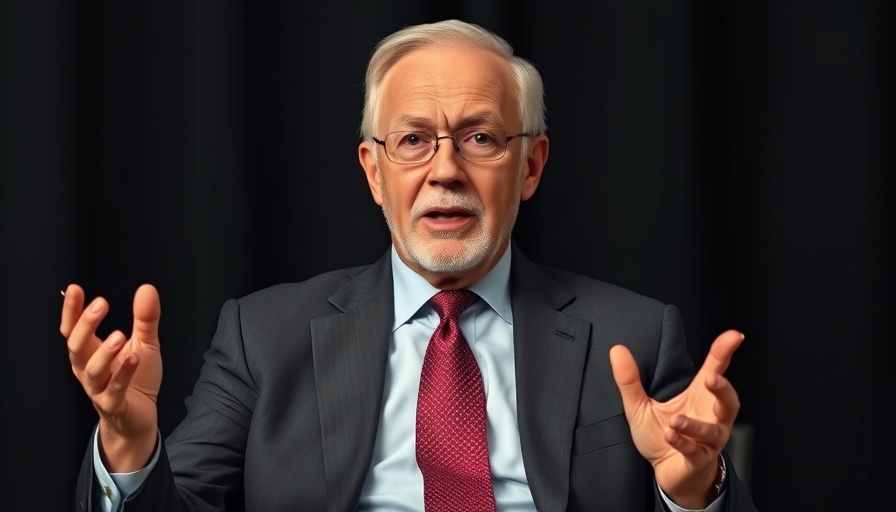
Exploring the Personal Side of Jamie Dimon, CEO of JPMorgan Chase
As the CEO of the largest bank in the U.S., Jamie Dimon, 69, has become a well-recognized figure in the financial world. Yet, beyond the numbers and the balance sheets, Dimon shares a more personal side that reflects his values and priorities.
Family First: The Core of Dimon's Priorities
In a recent episode of the "Acquired" podcast, Dimon revealed that his top three priorities in life are his family, his country, and his professional role at JPMorgan—highlighting a common sentiment among successful leaders: the importance of family. He passionately described spending time with his three adult daughters and seven grandchildren as not just a hobby but a significant aspect of his life that gives him purpose.
The Hobbies That Keep Him Grounded
Unlike many high-powered CEOs known for lavish hobbies, Dimon prefers simpler pleasures. He enjoys barbecuing, reading, and hiking, emphasizing that these activities contribute to his personal growth and relationships. In contrast to some peers who engage in extravagant pastimes—like Goldman Sachs CEO David Solomon's DJ career—Dimon finds fulfillment in more relatable and intimate pursuits, demonstrating how personal interests can align with one’s core values.
Work Ethic and Future Aspirations
Dimon's work ethic is evident in his commitment to JPMorgan, which boasts assets of $3.9 trillion. He stated his intent to continue leading the bank as long as he has the energy, making it clear that retirement is not on his immediate agenda. He has hinted at future plans to teach and possibly write a book, indicating a desire to give back and share his knowledge with others.
Lessons from Dimon's Leadership Style
For many CEOs, balancing professional demands with personal fulfillment can be challenging. Dimon’s approach provides valuable lessons on prioritizing family while still striving for professional excellence. His anecdotes reflect an understanding that personal well-being and strong family connections can positively influence leadership.
Taking Action: What You Can Learn
As busy professionals, it can be easy to overlook personal interests and family time amidst the hustle of business responsibilities. Dimon’s example encourages leaders to assess their own priorities and perhaps integrate enjoyable activities into their daily lives. Reflecting on the importance of family, leisure activities can provide much-needed balance, contributing not only to personal happiness but also improved work performance.
Conclusion: The Value of Intentional Downtime
In light of Jamie Dimon's lifestyle choices and leadership philosophy, prioritizing downtime allows for rejuvenation and perspective. Embracing hobbies and family time can lead to not only personal satisfaction but also enhanced professional productivity. As you navigate your own path in business, consider carving out intentional time for the things that truly matter.
 Add Row
Add Row  Add
Add 



Write A Comment